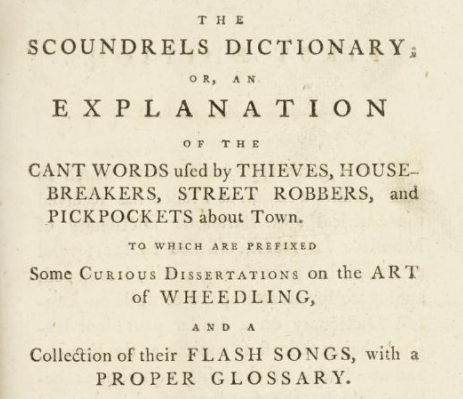via The National Archives Blog by Daniel Gilfoyle

The X marks a house in Accra quarantined during a plague outbreak: CO 1069/45, Colonial Office photographic collection, undated but probably c. 1910.
Researching Colonial Office records can be a slightly daunting prospect as the catalogue detail tends to be too sparse for effective keyword searching. To help researchers, The National Archives recently published a guide to Colonies and dependencies from 1782, which we hope will be very useful. But by way of an example, let’s consider researching an outbreak of bubonic plague in West Africa.
The third great bubonic plague pandemic, which began in China during the 1850s, spread along shipping lanes and reached many ports by the end of the century. Colonial officials took outbreaks very seriously because of the deadly nature of the disease and the potential to cause epidemics. At the time of the First World War, colonial medical officers considered the disease to be endemic in West Africa. Localised but regular outbreaks occurred in the British colonies of Sierra Leone, Gambia, Gold Coast (Ghana since 1957) and Nigeria throughout the war years. Plague was an important factor in the medical history of the region and, along with tropical diseases like yellow fever and malaria, a major influence on urban planning, sanitation and the layout of towns.
Continue reading
==============================
via 3 Quarks Daily: David Reich in the New York Times

Angie Wang
In 1942, the anthropologist Ashley Montagu published “Man’s Most Dangerous Myth: The Fallacy of Race,” an influential book that argued that race is a social concept with no genetic basis. A classic example often cited is the inconsistent definition of “black.” In the United States, historically, a person is “black” if he has any sub-Saharan African ancestry; in Brazil, a person is not “black” if he is known to have any European ancestry. If “black” refers to different people in different contexts, how can there be any genetic basis to it?
Continue reading
==============================
via Boing Boing by Mark Frauenfelder

I met science illustrator Paul Mirocha through a personal Discord server I set up and when Paul started posting his illustrations in the "Show your creations" channel, I was blown away. His style reminds me of the old Giant Golden science books, which I love. Paul's illustrations celebrate both the diversity and the surprising strangeness of nature. He lives in the Sonoran desert in Tucson, Arizona.
Continue reading
==============================
via About History by Christian

Nicholas Aleksandrovich Romanov was born on May 6 (May 18 by the Gregorian Calendar) 1868 in Tsarkoye Selo, todays Pushkin, near St. Petersburg. He was the oldest son of Alexander III and Maria Fyodorovna. Nicholas’ father had great influence on him, shaping his conservative religious values and his belief in autocratic government. He received his education from private tutors, one of them Konstantin Pobedonostsev, a high-ranking government official. Though Nicholas was very good with history and foreign languages, he struggled with politics and economics, and he never got any education or training for state affairs. He joined the army when he was 19, and in 1891, he traveled to India, China and Japan, making him the first Russian sovereign to show a personal interest in Asia.
Continue reading
==============================
via Interesting Literature
On a fine Easter poem by the author of The Faerie Queene
‘Most glorious Lord of Lyfe that on this day / Didst make Thy triumph over death and sin’: so begins the sonnet ‘Easter’ by Edmund Spenser (c. 1552-99), which is the 68th poem in his sonnet sequence Amoretti. The poem is a joyous celebration of the Easter festival and the meaning behind it.
Continue reading
==============================
via the OUP blog by Benn Steil

Rebuilding the Hotel Kempinski in Berlin with Marshall Plan aid, 1952. CC-BY-SA 3.0 via Wikimedia Commons
In 1947, with Britain’s empire collapsing and Stalin’s rise in Europe, US officials under new Secretary of State George C. Marshall set out to reconstruct Western Europe as a bulwark against communist authoritarianism. Their massive, costly, and ambitious undertaking confronted Europeans and Americans alike with a vision at odds with their history and self-conceptions. Benn Steil highlights ten intriguing facts about the Marshall Plan (officially the European Recovery Program) and how it shaped the decades following World War II.
Continue reading
==============================
via the Big Think blog by Paul Ratner
New research predicts the existence of completely different kind of stars.
Groundbreaking research indicates that a totally new kind of star may exist in our wild Universe, one with characteristics between a neutron star and a black hole. One of its traits would be an ability to swallow light, but not forever - the light could theoretically escape.
A black hole is a superdense area in space with gravity so strong that it doesn’t allow light to get out. Such a “hole” can range from being super-tiny, no more than an atom in size, to “supermassive” which has a mass of more than one million of our suns taken together.
Continue reading
==============================
via About History by Alcibiades

The Battle of Gaugamela, 331 BC, was a decisive victory in the conquest of the Persian Empire by Alexander the Great, when he defeated the Persian king Darius III. after this battle, the Achaemenid Empire ceased to exist.BEFORE THE BATTLE
The Macedonian king Alexander the Great started his conquest of Asia by passing through the Hellespont Strait in the spring of 334 BC. First, he defeated Persian satraps, at the Battle on the Granicus River. With that he captured all of Asia Minor. One year later, in the Battle of Issus, he managed to defeat a Persian army led by the Persian king Darius III. The Persian Emperor had to flee to the center of his Empire to try to collect a new army. After that, Alexander captured Syria and Egypt. Alexander first had to destroy the Persian Navy that controlled the sea. The Persian Emperor did not aspire to regain his possessions quickly, but he adopted a new strategy; lure the enemy deep into his territory, wear them down and then finish the enemy. The Persian Emperor tried to propose a peace and divide the Empire, but he was declined.
Continue reading
==============================
via Interesting Literature
In this week’s Dispatches from The Secret Library, Dr Oliver Tearle revisits the deftly plotted fantasy novels of Michael Moorcock
It’s not as well-known as it should be that C. S. Lewis nominated his fellow Inkling, J. R. R. Tolkien, for the Nobel Prize in Literature. In 1961, the Chronicles of Narnia author put forward the author of The Lord of the Rings, and his one-time Oxford colleague, for the award. Although the two writers did not see eye to eye when it came to each other’s work, Lewis thought highly enough of Tolkien’s fiction to recommend him for this prestigious honour. However, the Nobel Prize committee rejected the nomination, stating that Tolkien’s work ‘has not in any way measured up to storytelling of the highest quality.’
Continue reading
==============================
via Boing Boing by Clive Thompson

I am having too much fun reading A Classical Dictionary of the Vulgar Tongue, published in 1788 to provide definitions of the sort of vile, unmannerly slang employed by 18th-century streetfolk.
Continue reading
No comments:
Post a Comment